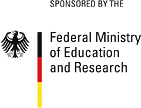Transnationalism and Elite Formation in Latin America: The Case Study of the Arabs in Honduras
Honduran elites emerged and evolved differently from the rest of the Central American region and Latin America. Instead of consolidating a traditional landed elite, or oligarchy, with direct ties to the land and monopoly of agrarian production. Honduras’ elites remained regional and local and dedicatedtheir commerce mainly to trade and later to manufacturing. Honduran authorities were forced to use alternative ways to modernize the traditional production system to enter the world market, namely they established a concessionary system that allowed foreign companies and investors to extract resources. Thus, Honduran elites emerged with deep ties to foreign capital and actors with whom they established transnational networks.
Honduran elite formation process indicates a distinctive ethnic component. Together with the traditional Spanish criollos and mestizos from the colonial period, Honduras elites are composed of foreigners / immigrants particularly of non-European descent, as is the case of the Arabs, and to a lesser extent, the Jews. Arabs established transnational networks with their homeland (particularly Palestine) and other countries and regions. Today, Arabs are one of the most important economic and political elites. Their non-Eurocentric immigrant status, their commercial and trading ties between the home and host land as well as with other regions in Latin America are indicative of Honduras’ distinct elite formation process, namely its transnational features. Furthermore, transnationalism is also manifest in the country’s production system suggesting the existence of complex socio-economic networks that contribute to reproducing high levels of socio-economic and political inequality in the country.
This study looks at Honduras’ elite formation processes. Drawing on the case study of the Arabs, it aims at understanding the chief historical, political and socio-economic processes leading the consolidation of a transnational elite and a transnational production system. On the other hand, this research sets out to answer whether the permeating transnational features are decisive in generating socio-economic and political inequality.


